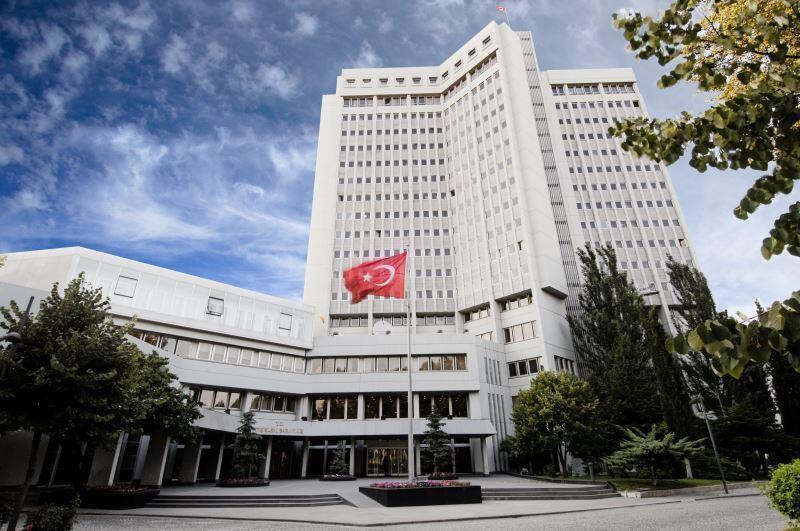
A resolution of the Senate of the Czech Republic adopted on May 20 concerning the events of 1915 indicates that the “twisted mentality built on the one-sided baseless discourses which damaged” the relations of the two countries in 2017 is still effective in the Czech Republic, said the Turkish Foreign Ministry.
The adoption of the resolution at a time when the whole world is struggling with the coronavirus pandemic with a few numbers of members in the Senate also demonstrates the “insidious mentality behind it,” the ministry said in a written statement on May 22.
It is not possible to attribute a meaning further than a historical controversy to the events of 1915, as ruled out by the European Court of Human Rights (ECHR) in the articles 173 and 231 of its decision in 2015 and as reiterated in the second decision in 2017, said the statement.
“Attempts to define a historical issue in line with politics and the interest of certain circles cannot be accepted,” the ministry said.
“We hope those who are willing to approach history unilaterally, take into consideration the understanding of our President sharing the common sufferings in his letter to Armenian Patriarch of Turkey sent on 24 April 2020,” read the statement.
Ankara called on the parliament of the Czech Republic to respect the provisions of the Lausanne Peace Treaty, international court decisions and the historical and present sources of international law.
“This resolution, which we deem null and void, is nothing but futile attempts of those who are trying to rewrite history in the pursuit of their daily political interests,” said the statement.
Turkey’s position on the events of 1915 is that the deaths of Armenians in eastern Anatolia took place when some sided with invading Russians and revolted against Ottoman forces. A subsequent relocation of Armenians resulted in numerous casualties.
But Armenia and the Armenian diaspora call it a “genocide.”
Turkey objects to the presentation of the incidents as “genocide” but describes the events as a tragedy in which both sides suffered casualties.
Ankara has repeatedly proposed the creation of a joint commission of historians from Turkey and Armenia plus international experts to examine the issue.